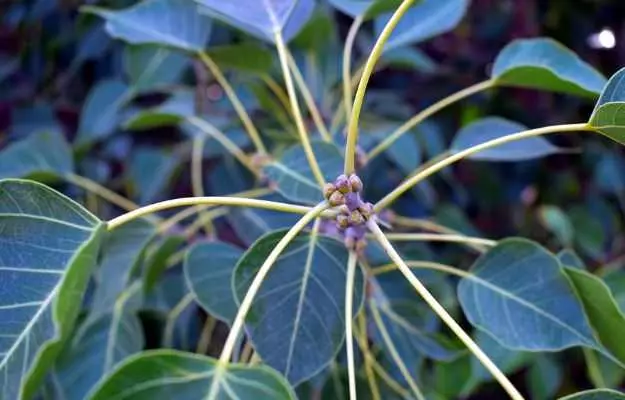The peepal tree, botanically known as Ficus religiosa, is considered to be sacred in India. It has a deep-rooted significance in the Indian culture as it is the tree underneath which Lord Buddha was believed to have attained enlightenment. So, it is often referred to as the ‘bodhi tree’. Traditional Indian literature describes the peepal tree as ‘ashwatta’, that is, the tree is an emblem of the ‘tree of life’.
Ficus religiosa also commonly called as the sacred fig is native to tropical parts of Asia, especially, India and China. It is large with a wide trunk, the diameter of which can be up to 3 metres. The leaves of the tree are heart-shaped and have a distinctive tip. The fruits of the tree are usually small figs that are green when young and turn purple upon ripening.
The lifespan of the peepal tree is usually very long, with an average of 900 to 1500 years. The Jaya Sree Maha Bodhi peepal tree in Sri Lanka, regarded as ‘Oldest historical tree in the world with religious importance’ is, in fact, more than 2250 years old.
Some basic facts about the peepal tree
- Botanical Name: Ficus religiosa
- Family: Moraceae
- Common Name: Sacred fig, bodhi tree, peepul tree, peepal tree
- Sanskrit Name: Ashwatta, Pippala
- Parts Used: Leaves, branches, flowers, fruits, bark
- Native Region and Geographical Distribution: Native to tropical Asia, especially India and China.
























